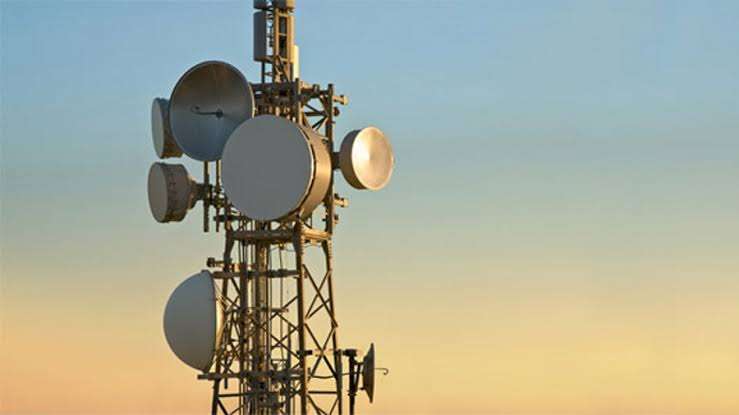Nigeria’s telecom operators have raised alarm over an escalating wave of vandalism and theft targeting critical infrastructure across the country.
Under the banner of the Association of Licensed Telecommunications Operators of Nigeria (ALTON), the group says attacks on base stations and fibre installations have become a nationwide threat to economic stability and national security.
In a statement issued by ALTON Chairman, Engr. Gbenga Adebayo, the group disclosed that between May and July 2025 alone, operators recorded dozens of vandalism incidents across Rivers, Ogun, Osun, Imo, Kogi, Ekiti, Lagos, and the Federal Capital Territory.
According to ALTON, these incidents have caused widespread connectivity blackouts, degraded service quality, and left millions of subscribers cut off from mobile and internet networks.
“This is not just theft. This is sabotage of critical national infrastructure,” the association noted.
What You Need to Know
The association pointed out that the scale and frequency of these attacks have placed pressure on telecom networks, forcing service providers to divert resources into emergency repairs, while delaying infrastructure expansion in many underserved regions.
Industry insiders say the rising wave of sabotage has the potential to erode years of progress in digital access and service delivery.
The impact of these disruptions, the association said, is far-reaching, affecting not just personal communications but also emergency response coordination, financial services, e-commerce, digital health, and national security systems that rely on uninterrupted telecom access.
What This Means
ALTON warns that the continued sabotage of telecom infrastructure may endanger Nigeria’s digital development goals.
“Our industry has not seen this scale of investment in recent years,” Adebayo said. “We are working round the clock to improve the quality of service nationwide, and we cannot afford these setbacks.”
Adebayo added that, from high-capacity batteries and diesel generators to power cables and fibre optics, telecom sites are being stripped of their most valuable components.
Solar panels and rectifiers are also frequently targeted, often rendering entire cell sites inoperative for days.
A Black Market Fuelled by Stolen Infrastructure
ALTON also expressed particular concern about the growing black market for stolen telecom equipment. It urged Nigerians to stop patronising vendors selling suspicious telecom-grade components, stating,
“If you buy stolen telecom equipment, you are not just complicit — you are part of the crime,” it said.
In a bid to avert what it described as a “full-blown national communications crisis,” ALTON is now calling on Nigeria’s security architecture to take urgent and coordinated action.
It has appealed directly to the Office of the National Security Adviser (ONSA), the Nigeria Police Force, the Department of State Services (DSS), and the Nigeria Security and Civil Defence Corps (NSCDC) to intervene.
Policy Declarations, Little Action
The renewed attacks on telecom infrastructure come amid the federal government’s efforts to operationalise its Critical National Information Infrastructure (CNII) policy, which was formalised last year by President Bola Tinubu.
The gazette, titled ‘Designation and Protection of Critical National Information Infrastructure Order, 2024’, makes it a criminal offence to wilfully destroy telecom or other digital infrastructure in Nigeria.
Minister of Communications, Innovation, and Digital Economy, Dr. Bosun Tijani, had described the gazette as “a significant step towards protecting strategic investments in the ICT sector.”
However, this is not the first time such policy declarations have been made. In June 2020, the Buhari administration issued a similar order under then-Minister of Communications Dr. Isa Pantami.
That effort, critics say, had little tangible effect, as vandalism remains a daily occurrence.
Industry experts have argued that while the CNII designation is commendable, its enforcement remains the missing link.
As Nigeria ramps up its digital transformation agenda, from 5G rollout to broadband expansion and smart infrastructure adoption, the country’s telecommunications backbone must be adequately protected, experts added.
Talking Points
It is alarming that telecom operators are having to contend with such a destructive wave of vandalism, especially at a time when the sector is recording historic levels of investment in infrastructure upgrades.
The frequency and spread of these attacks show that this is no longer a sporadic challenge but a national crisis requiring urgent, coordinated response.
The damage is not just technical; it has social and economic consequences. Network outages mean disrupted financial transactions, broken emergency services, and millions cut off from essential communication.
At Techparley, we see this as a threat to Nigeria’s digital economy goals. No matter how ambitious our broadband plans are, the physical infrastructure must be protected for any of it to work.
The thriving black market for stolen telecom components shows there’s a deeper problem. When base station batteries and solar panels end up powering private homes, we’re dealing with systemic issues of energy poverty and economic desperation.
We believe stronger collaboration between security agencies, local governments, and the telecom industry is non-negotiable at this point. This has to move from advocacy to enforcement.
If Nigeria is serious about building a digital future, safeguarding telecom infrastructure must become a top-tier national security priority.





